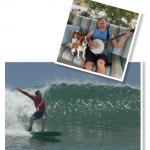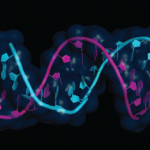Novice and veteran researchers with creative ideas, a commitment to improving the lives of patients with arthritis, and a desire to mentor or learn from others in the field will find numerous opportunities at the Arthritis Foundation (AF). As part of its mission—which also includes patient education, self-help programs, and awareness—the organization has invested more than $272 million in research to support the work of more than 2,100 scientists, physicians, and health professionals. Last year alone, the AF awarded 284 grants, including 102 new ones and 182 continuing grants, to researchers at more than 100 academic institutions.
The AF’s research program complements government- and industry-based arthritis research by focusing on training new investigators and pursuing innovative strategies for preventing, controlling, and curing arthritis.
The AF funds three major types of grants:
- Career development and training programs: These grants encourage scientists to begin research careers in the arthritis field and develop into independent arthritis researchers.
- Investigator-initiated programs: These grants support basic, clinical, and health services research relevant to arthritis.
- Special targeted research initiatives: These grants focus on promising areas of arthritis research or on specific types of arthritis.
We have supported many projects that have facilitated bringing new discoveries to the marketplace and showing applications for patient care.
Additionally, the AF established a new innovative grants program in 2002. This was designed to support creative, high-risk ideas in arthritis research. The dollar amounts and time frames for AF grants vary but can reach $100,000 over two years.
The AF research program funds studies with the greatest potential for improving the lives of people with arthritis. The organization supports a broad spectrum of types of research and scientific disciplines. These include basic “bench” research in such areas as genetics, immunology, biochemistry, and cell biology; clinical “bedside” and behavioral studies that utilize human subjects to develop and test new medical, rehabilitation, surgical, and educational treatments; and research in the real world, including epidemiology studies to increase understanding of disease patterns.
Most funding for AF research comes from contributions from the public, according to John H. Klippel, MD, president and CEO of the organization. The program’s funding stream involves direct mail, annual giving programs, special events such as the Jingle Bell Run/Walk, and community-level activities such as breakfasts.
The AF employs a peer review process for evaluating and selecting research projects for funding. Additionally, the organization has a research council, involving rheumatologists, consumers, scientists, and others, charged with guiding its research program.

